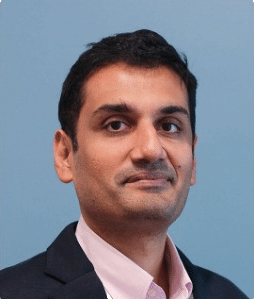“Don’t pick up the bow and fight the outsider. Pick up the mirror. And hold it up to help people improve themselves”
– Karan Maheshwari & Vinay R Sanjivi
The Modern Kurukshetra
When we think of the Mahabharata, we often recall its grand battles, celestial dialogues, and divine drama. But beneath the thunder of chariots and the weight of destiny lies a quieter insight a profound lesson in system orchestration.
Fast forward to today. The battlefields are no longer plains of Kurukshetra, but the corridors of education departments, teacher training centers, and schools. The tools have changed, budgets, missions, policies, and progress indicators have replaced bows and arrows. But the stakes remain just as urgent: every child’s learning, every school’s growth, every community’s future.
And the lesson remains timeless:
If we want systems to transform, we must build people, not programs, change mindsets, not just behaviour
We must learn to lead like Krishna.
Unlike the warriors who fought the war, Krishna never drew a weapon. He didn’t issue commands or claim victory, and he was not the protagonist. Instead, he operated through insight and orchestration. He guided others into clarity, placed the right people in the right places, and created the conditions for action without overshadowing agency.
Sounds familiar?
That’s exactly what effective system leaders do today, especially in public education reform. They aren’t always on the front lines. They don’t always have a title. But they know how to read the field, connect the dots, and coach others into confidence and action.
In a world of complex, interconnected challenges, we don’t need more Arjuna-style heroes charging ahead. We need more Krishnas who are thoughtful, strategic enablers who hold the space for others to lead.
This is the work of true system transformation. And it’s only just beginning.
The missing Charioteer
In the Kurukshetra of India’s education system, which is grappling with many challenges leading to education inequity, transformation doesn’t happen with one battle or one hero. It needs self-driven ecosystems, continued collaboration, and timely wisdom. Leaders in this space, including NGOs, government officials, or philanthropic actors or school leaders, often confuse heroism with effectiveness. But what the Mahabharata shows us is that sometimes the only powerful position is not the front line, but is the charioteer’s seat.
Krishna’s role, being the charioteer, was that of a coach, strategist, and systems thinker. He was quiet and thought-provoking – reminded Arjuna of his purpose when the challenges and difficulties of navigating a war shook his belief. He asked questions, gave gentle suggestions, interpreted moral dilemmas, and let Arjuna drive the change forward on his own terms, but with deep guidance in the moment needed when his head got muddled.
That’s the essence of system orchestration, bringing diverse missions driven by a shared purpose.
The Dharma of a System Orchestrator: Guiding Without Grabbing the Reins
In the world of education reform, many well-meaning efforts falter not because of a lack of vision, but because of overreach without accounting for change. Too often, programs are scripted down to the last detail, rigid blueprints, fixed outcomes, linear logics. They treat systems like machines. But education systems are made of people, and people don’t respond well to pre planning and control. They respond to meaning, context, and agency. They like to dance, not run.
This is where the metaphor of Krishna as a system orchestrator becomes so vital.
Krishna didn’t hand Arjuna a to-do list before the battle. He didn’t micromanage the war or give instructions. He sat beside him, asked piercing questions, reminded him of his purpose, and let Arjuna choose his path. That wasn’t a passive role; it was an act of powerful orchestration. He knew the battlefield, the players, and the stakes. But he also knew when to speak, when to pause, and when to let Arjuna lead.
System leadership in education demands the same.
Take micro-improvements, for instance. These are not centrally mandated reforms but locally led, context-specific actions taken by teachers, headmasters, or district and state officials. Like Arjuna choosing where to aim, these actions are rooted in lived experience of the local systems. The system orchestrator’s role is not to choose the arrow, but to ask: Is your aim aligned with the dharma of the system driving towards the larger goal?
That dharma is not just academic performance. It is dignity. It is equity. It is learning that lasts. Movements like Shikshagraha hold that dharma at the center, not by delivering programs, but by building platforms, nurturing capabilities, and creating the conditions for distributed leadership to thrive.
This work isn’t always visible. Or glamorous. Or fast. It means:
- Knowing when and how to support when most needed in the moment.
- Pausing to celebrate progress. Reflect. Course correct and move forward.
- Holding urgency in one hand and patience in the other.
Timing is everything. Krishna didn’t intervene too early or give gyan post the event. He didn’t impose outcomes. He walked with Arjuna before, during, and after the battle, offering clarity and companionship without ever overshadowing his agency.
But not everyone on the battlefield wants to be guided.
Every system has its Duryodhanas, influential, resistant, sometimes hostile to change. These are the stakeholders who are intelligent, brave and well-minded but ego-centric and proud and stall progress, challenge collaboration, or cling to power structures. Krishna didn’t confront Duryodhana with force. He used diplomacy, insight, and a deep understanding of where his mind stood. And when push came to shove, he stood by dharma, not diplomacy or righteousness or tradition. He was practical, pragmatic keeping in mind the greater good and sometimes giving up short-term principles.
System orchestrators today must do the same, walking the fine line between engagement and principle. Balancing perfection in content and pedagogy with intent and purpose and localisation. They must learn to navigate the powerful and the sceptical, to invest in those ready to move, and to know when to let go.
This is the true dharma of system orchestration:
Not to command, but to catalyse. Not to intervene, but to interweave.
Because the greatest transformation happens not when we direct change, but when we create the conditions for change to emerge and sustain itself.
From Epic to Ecosystem
In the Mahabharata, the turning point wasn’t a weapon; it was a moment of insight in battle. Krishna didn’t defeat the Kauravas. He enabled Arjuna to choose, reminded him of his purpose and motivated him when most needed.
In the education system, too, success does not come from one flagship program or campaign. It will come from hundreds of decentralised, context-rich, leader-led shifts. It will come from those who guide by the side more than govern from afar.
This is the soul of Shikshagraha.
Just a reminder that sometimes, the most powerful place to be is one step behind/below the hero holding the reins of his chariot, watching, reflecting, guiding and showing him the mirror.


